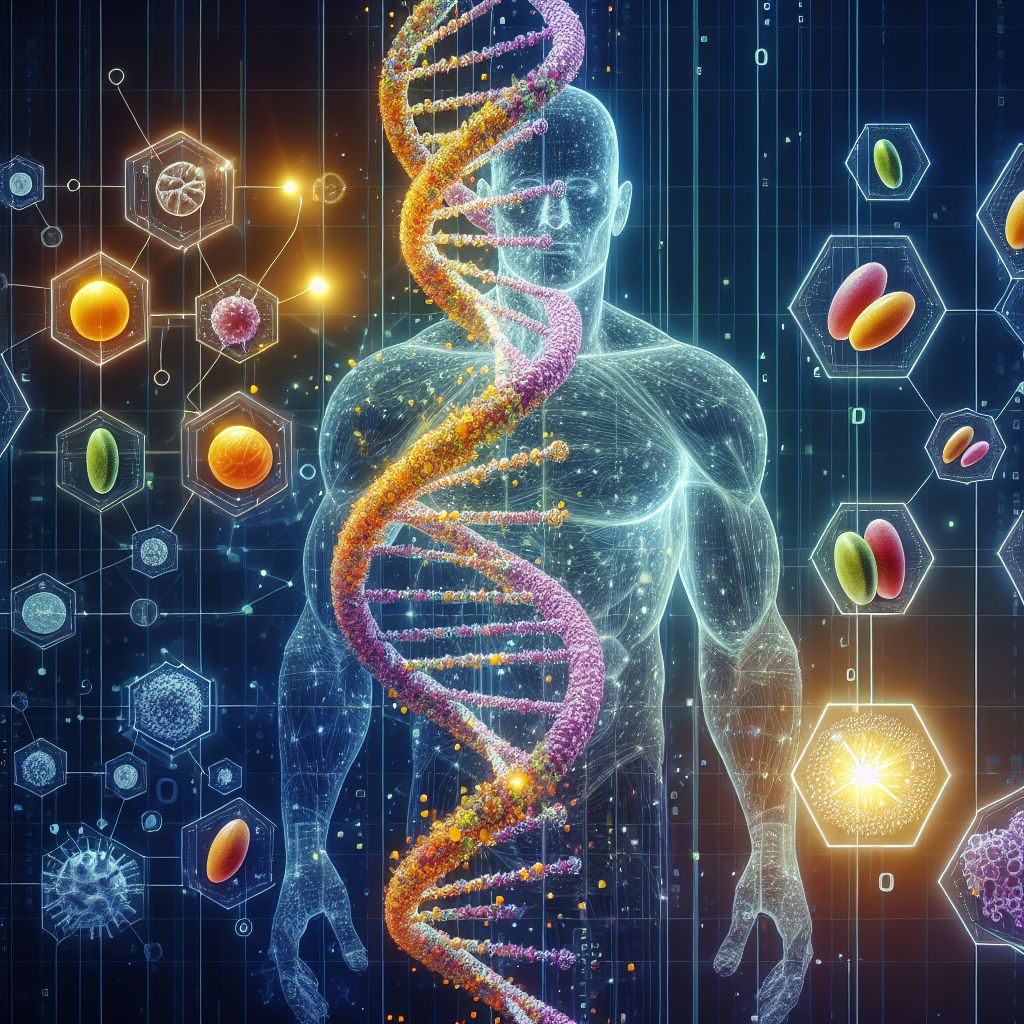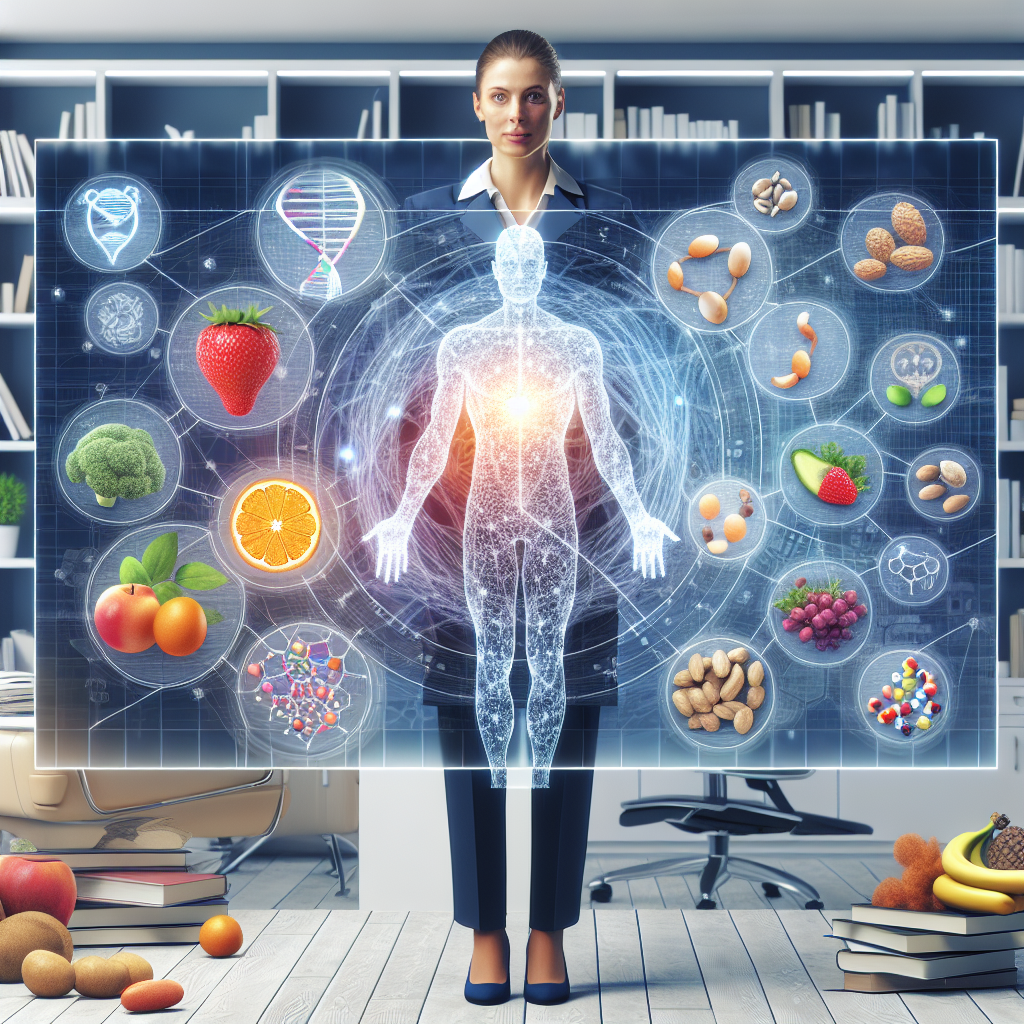Human Design and Vitamins: Personalized Health

Discover your unique Human Design and learn how personalized vitamins can enhance your health. Start your journey towards a healthier you today. Click here to get started.
Exploring the Connection Between Human Design and Vitamin Intake
Human Design, a system that combines astrology, the I Ching, Kabbalah, Hindu-Brahmanic system, and quantum physics, is increasingly being used to understand individuality and personal health. It provides a blueprint of our unique genetic makeup, offering insights into our strengths, weaknesses, and potential health issues. Recently, there has been a growing interest in the connection between Human Design and vitamin intake, with the belief that personalized health can be achieved through a tailored approach to nutrition.
The Human Design system categorizes individuals into four types: Manifestors, Generators, Projectors, and Reflectors. Each type has a unique way of interacting with the world, and by extension, different nutritional needs. For instance, Manifestors are known for their initiating energy and may benefit from vitamins that support energy production and stress management, such as B-complex vitamins. Generators, on the other hand, have a sustained energy output and may require vitamins that aid in muscle recovery and energy replenishment, like magnesium and vitamin D.
Projectors, who are known for their ability to guide and manage others, may find that their energy levels can be inconsistent. They might benefit from vitamins that support adrenal health and energy balance, such as vitamin C and B5. Lastly, Reflectors, who are sensitive to their environment, may need vitamins that support immune health and detoxification, such as vitamin A and E.
However, it’s important to note that while Human Design can provide a general guideline, it doesn’t replace the need for individualized nutritional advice. Each person’s nutritional needs are influenced by a variety of factors, including age, gender, lifestyle, and underlying health conditions. Therefore, it’s crucial to consult with a healthcare professional before making any significant changes to your vitamin intake.
Moreover, the quality of the vitamins consumed is equally important. Not all vitamins are created equal, and the body’s ability to absorb and utilize these nutrients can vary greatly depending on the form and source of the vitamin. For example, natural vitamins derived from whole foods are generally more bioavailable and easier for the body to absorb compared to synthetic versions. Therefore, it’s recommended to choose high-quality, natural vitamins whenever possible.
In addition, it’s essential to remember that vitamins are just one piece of the puzzle when it comes to health. A balanced diet, regular exercise, adequate sleep, and stress management are all crucial components of a healthy lifestyle. While vitamins can support specific aspects of health, they cannot compensate for poor lifestyle choices or cure diseases.
In conclusion, the connection between Human Design and vitamin intake offers a fascinating perspective on personalized health. By understanding our unique genetic blueprint, we can tailor our nutritional approach to support our individual health needs. However, it’s important to approach this concept with a balanced perspective, recognizing that vitamins are a supportive tool rather than a magic bullet. As always, it’s recommended to seek professional advice before making any significant changes to your diet or supplement regimen.
Personalized Health: Tailoring Vitamin Regimens Based on Human Design

Human Design, a system that combines astrology, the I Ching, Kabbalah, Hindu-Brahmin chakra model, and quantum physics, is increasingly being used to personalize health regimens, including vitamin intake. This innovative approach to health and wellness is based on the belief that each person has a unique design, which can be used to guide decisions about diet, exercise, and even vitamin supplementation.
The Human Design system categorizes individuals into four types: Manifestors, Generators, Projectors, and Reflectors. Each type has its own specific needs and characteristics, which can be used to tailor a personalized health regimen. For instance, Manifestors are believed to have a strong need for certain vitamins and minerals to support their energetic output, while Generators may require a different set of nutrients to maintain their sustained energy levels.
In the realm of vitamins, the Human Design system can provide valuable insights. For example, a person with a defined Throat Center, which is associated with communication and expression, might benefit from vitamins that support thyroid health, such as iodine and selenium. On the other hand, someone with a defined Spleen Center, which is linked to intuition and the immune system, might need vitamins that boost immunity, like vitamin C and zinc.
Moreover, the Human Design system also takes into account the individual’s dietary regimen. For instance, those with a defined Taste Center are believed to have a strong connection with food and may benefit from a diet rich in vitamins from natural sources. Conversely, those with an undefined Taste Center might need to supplement their diet with additional vitamins to ensure they are getting all the necessary nutrients.
The concept of personalized health based on Human Design is not just about tailoring vitamin regimens. It also extends to other aspects of health and wellness, such as exercise routines and stress management techniques. For example, a person with a defined Heart Center, which is associated with willpower and ego, might benefit from high-intensity workouts, while someone with an undefined Heart Center might need more gentle forms of exercise, like yoga or tai chi.
While the Human Design system offers a unique and personalized approach to health and wellness, it’s important to remember that it should not replace professional medical advice. It’s always recommended to consult with a healthcare provider before starting any new health regimen, including changes to diet, exercise, or vitamin supplementation.
In conclusion, the Human Design system offers a new perspective on health and wellness, allowing individuals to tailor their vitamin regimens and other aspects of their health routines based on their unique design. By understanding our individual designs, we can make more informed decisions about our health and wellness, leading to improved overall well-being. As we continue to explore the intersection of Human Design and personalized health, we may discover even more ways to optimize our health based on our unique designs.
The Role of Human Design in Determining Optimal Vitamin Consumption
Human Design, a system that combines astrology, the I Ching, Kabbalah, Hindu-Brahmanic system, and quantum physics, is increasingly being recognized for its potential in personalized health, particularly in determining optimal vitamin consumption. This innovative approach to health and wellness is predicated on the belief that each individual is unique, and therefore, their nutritional needs are also unique.
The Human Design system categorizes individuals into four types: Manifestors, Generators, Projectors, and Reflectors. Each type has a distinct way of interacting with the world, and by extension, different nutritional needs. For instance, Manifestors are known for their initiating energy and may benefit from vitamins that support energy production and stress management, such as B-complex vitamins. On the other hand, Reflectors, who are sensitive to their environment, might require a more tailored approach to vitamin consumption, focusing on those that support immune function and detoxification, like Vitamin C and E.
Transitioning to the specifics, the Human Design system also considers the individual’s defined and undefined centers, which are akin to the chakras in the Hindu-Brahmanic system. These centers represent different aspects of a person’s life and health. For example, an individual with a defined Throat Center, which is associated with communication and expression, might benefit from vitamins that support thyroid health, such as iodine and selenium. Conversely, someone with an undefined Throat Center might need to pay more attention to their vitamin D levels, as this vitamin is crucial for calcium absorption and overall immune health.
Moreover, the Human Design system also takes into account the individual’s profile, which is a combination of two numbers that provide insight into their life purpose and strategy. For example, a 1/3 profile, known as the Investigator/Martyr, might benefit from vitamins that support cognitive function and nervous system health, such as B-vitamins and omega-3 fatty acids. This is because the 1/3 profile is characterized by a deep need to understand the world and a willingness to learn from trial and error, which can be mentally taxing.
In addition to these factors, the Human Design system also considers the individual’s dietary regimen, which is determined by their design type and authority. This can range from eating in a calm environment, which might necessitate vitamins that support digestion like probiotics and digestive enzymes, to eating when there is an appetite, which might require vitamins that support metabolism, such as B-vitamins and chromium.
In conclusion, the Human Design system offers a personalized approach to health and wellness, including vitamin consumption. By considering an individual’s type, defined and undefined centers, profile, and dietary regimen, it provides a roadmap for optimal health that is tailored to the individual’s unique needs. While more research is needed to fully understand the implications of this system, it holds promise for those seeking a more personalized approach to health and wellness. As always, it is recommended to consult with a healthcare professional before making any changes to your vitamin consumption or overall diet.